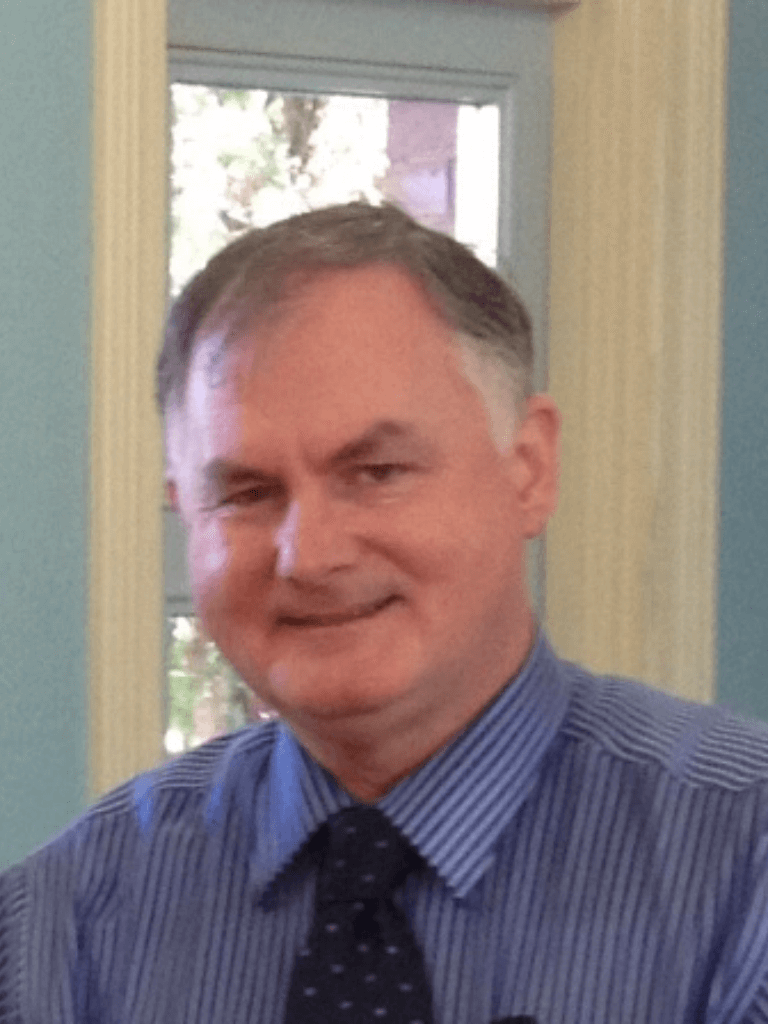Leadership and Well-Being

“Though her words are simple and few,
Listen, listen, she’s calling to you.
Feed the birds, tuppence a bag,
Tuppence, tuppence, tuppence a bag.”
‘Mary Poppins’ (1964) Disney Studios.
In the Disney movie ‘Mary Poppins’, Mary draws attention to the person selling breadcrumbs to people for Tuppence, so they can feed the birds. Mary Poppins encourages the children in her care to learn to feed the birds in life. It is, of course, a metaphor for caring for others and caring for yourself. After all, if you won’t give tuppence about yourself, why should others? Likewise, if you don’t care about others, couldn’t give tuppence for others, why would they care about you? In the movie ‘Mary Poppins,’ George Banks is portrayed as this cold father figure who struggles to show love to his family, partly in the name of efficiency, partly because work is his priority, and partly because of his own upbringing. The lesson that Mary Poppins is teaching his children, are also lessons she is trying to teach him as well, is that you need to give a tuppence about the important things in life. After all, Mary Poppins is ‘practically perfect’!
The question really comes down to: How do you feed the birds to maintain your sense of Well-being? How do you contribute to the well-being of others?
The two questions are, of course, related. Giving back to the world and helping and supporting others can also be beneficial to one’s own sense of well-being. It also works in reverse. St Francis of Assisi observed this in the famous ‘Peace Prayer of St Francis’: “It is in giving that we receive.” One of the curious things about COVID-19, despite the havoc it continues to bring to countries and people around the world, is the way it has highlighted just how connected we are and how fragile life really is.
The findings from a recent OECD report on our Well-being during the 2020 phase of the pandemic make for interesting reading. In summary, those findings were:
- Income and Wealth: Prior to the pandemic, disposable income across the OECD countries had increased by 2.9%. However, by the end of 2020, 31%, almost one-third of people in 25 OECD countries were facing financial hardship.
- Work and Job Quality: Prior to the pandemic, unemployment rose to 1.9 percentage points in the OECD countries. In the first half of 2020, 14% felt their jobs were no longer secure. Labor underutilization was very evident.
- Physical and Mental Health: According to the report, across 33 OECD countries, the death rate increased by an average of 16% between March 2020 and May 2021, and life expectancy fell by 0.6%. By late 2020, across 15 OECD countries, more than one-quarter of the population were at risk of Anxiety or Depression by the end of 2020.
- Work-Life Balance: According to the OECD survey, 1 in 3 people throughout the pandemic in 2020 were too exhausted to undertake household chores. Many noticed that work had found its way into their personal / family life, especially those engaged in ‘telework’.
- Social Connections: According to the report, 20%, 1 in 5 people by early 2021, in 22 OECD countries, felt lonely “most or all of the time”, an increase from 1 in 7 people.
- Social Capital: The report found that by May 2021, a majority of respondents in 12 OECD countries “felt society was more divided than Pre-Covid.”
OECD (2021), COVID-19 and Well-being: Life in the Pandemic. Paris: OECD Publishing. p3.
What the report from the OECD really highlights, is that the pandemic that is COVID-19, has had a horrendous impact upon all aspects of our lives, from work to family, to friends and the society in which we live more broadly. This disconnect reveals the discontinuity that people have been experiencing, not just in the workplace but in schools, clubs, hospitals, and family life, in fact, most places you might think of. In Anthropology these notions of discontinuity leads naturally to discussion of rupture, which has a lot of currency, especially in this context. Anthropologists, Martin Holbraad, Bruce Kapferer, and Julia F. Sauma in their excellent book, ‘Ruptures and Discontinuity in Times of Turmoil’, highlight the potential and the impacts that ruptures can have. They note that ruptures emerge from a serious disconnect between what has previously been regarded as normal or familiar and as a result, have the very real potential for high-level impact upon those caught in the rupture.
“The unsettling effects of rupture understood as a radical and often forceful form of discontinuity, are central to current perceptions of a world in turmoil. How far might a sense of rupture – of a world that is serially breaking with itself – be an occasion to transform conceptions of social and political transformation? …While rupture operates as an inherently negative moment – a critical cut or ‘switch-point’ (Weber 1930) that instigates a significant break with existing conditions – by the same token it can act as a positive or dynamic impulse towards escape, redirection, reconstitution, and sometimes renewal.
Martin Holbraad, Bruce Kapferer and Julia F. Sauma (2019) ‘Introduction: Critical Ruptures’ in Holbraad, M., Kapferer, B. and Sauma, J.F. (eds). 2019. Ruptures: Anthropologies of Discontinuity in Times of Turmoil. London: UCL Press.
The notion that a rupture in the social fabric of our lives can also lead to renewal, is exceptionally helpful when connecting the current turmoil to Well-being. Our sense of Well-being has never been more critical and in need of a ‘laser-like’ focus. Our physical, mental and most likely our spiritual health, demands it!
It may be useful to be clear as to what is meant by “Well-being’. The Health Department for the State of Victoria in Australia, provides this useful definition of ‘Well-being’.
“Wellbeing is not just the absence of disease or illness. It’s a complex combination of a person’s physical, mental, emotional, and social health factors. Well-being is strongly linked to happiness and life satisfaction. In short, wellbeing could be described as how you feel about yourself and your life.”
Department of Health (Victoria State Government). (2020). Wellbeing. Better Health Channel. Melbourne: State of Victoria.
With Well-being covering a “person’s physical, mental, emotional and social health”, there is a compelling case for leaders of organizations, government and non-government alike, to take Well-being seriously. These factors go directly to a person’s sense of job satisfaction, productivity and ability to work collaboratively as part of a team. The age-old saying ‘you can’t give, what you haven’t got’, is particularly pertinent in any discussion on Well-being, particularly for leaders. Well-being is really a case where the leader needs to lead by example. Further testimony to the importance of leaders taking their own Well-being and that of their team seriously, was highlighted in a recent McKinsey report, referencing a McKinsey survey.
“A (2020) McKinsey survey on employee experience found that taking care of one’s physical and mental health was associated with a 21 percent improvement in work effectiveness, a 46 percent improvement in employee engagement, and a 45 percent improvement in well-being. Organizations that invest in scaling well-being and improving employee experience have seen lower rates of employee turnover, higher ratings on innovation, and even increased Iong-term stock performance. They are also more frequently cited as great places to work.”
Brassey, J., De Smet, A., Kothari, A., Lavoie, J., Mugayar-Baldocchi, M., Zolley, S. (2021). Future Proof: Solving the ‘Adaptability Paradox’ for the Long Term. New York: McKinsey & Company.


Whilst COVID-19 has had many impacts upon our lives, our towns, cities and countries, it has served as a reminder to those things that are important in life.
It makes sense to encourage and even engage in Well-being strategies with your team. Ultimately, when the leader takes the initiative and leads by example, they are also demonstrating their own level of personal leadership, their ability to lead themselves with integrity and purpose. By ‘walking the walk,’ not just ‘talking the talk,’ the leader builds confidence and trust in the team. Psychological safety is also an important part of the Well-being puzzle. The McKinsey report cited above also points out that to be taking care of your Well-being, involves taking care of your “ body, mind and spirit.” The importance of good mental and emotional health was also highlighted by Mark Crowley in his excellent book, ‘Lead From The Heart.’
“Emotions are an innate – and human – quality found in all people. Emotional energy is the true motivation of the human spirit; it’s the force of life. Emotions create action and, with positive emotion, people are virtually limitless in what they can achieve.”
Crowley, Mark. C. (2011). Lead From the Heart (eBook). Bloomington, Indiana: Balboa Press. p14.
It is well known that a person’s mental and emotional health can impact the biochemistry of the body, positively (for example the release of Oxytocin) or negatively (for example the release of large quantities of Cortisol, often found in inflammatory conditions). A Harvard Medical School Special Report found that there is a disturbing similarity and likely link between Depression and ‘Immune-based Inflammation’.
“One interesting development has been the discovery that depression shares many of the same characteristics, risk factors, and symptoms as immune-based inflammatory responses. We know that low mood, appetite loss, sleep disturbances, trouble concentrating, and a lack of energy are clear hallmarks of depression, but these are also signs of inflammation. Many of the same risk factors that make people more vulnerable to depression—like stress, obesity, and eating a highly processed diet—also put them at risk for heart disease and other inflammatory conditions.”
Shmerling (MD), R, H.(Ed). (2020). Fighting Inflammation. Boston, MA: Harvard Health Publishing. p44.
The damage that inflammation, particularly chronic, sustained inflammatory responses can have on the human body should not be underestimated. From Heart health issues, to increased risk of Stroke, Gut health issues, even Eye health issues (including vision loss through Optic Neuropathy), should not be underestimated. The case for Well-being, especially in the workplace which can occupy 8 hours of our day, is incredibly compelling and the evidence of the benefits to staff and to the organization, is overwhelming.
All of this highlights how broad the area of Well-being is and things that need consideration. Obviously an anti-inflammatory diet, getting plenty of sleep and looking after your inner-self as much as your outer-self are all key to the Well-being conversation you likely need to have with yourself and it should be suggested, your health care professional as well. The other things to note are the simple, often inexpensive things an individual can do to help maintain their personal Well-being. It should also be noted that some of these simple and inexpensive things can be scaled up across an organization. A walking group or a jogging club, finding ways to be involved with the local community, encouraging optimism in the workplace and ensuring that expectations and boundaries around when work is done and when it should not be done are respected. Being respectful of family time and ‘downtime’ is just as important as the work itself. The Health Department for the State of Victoria in Australia, provides this useful but not exhaustive list of what can be done to maintain a person’s Well-being.
How to achieve wellbeing
- Develop and maintain strong relationships with family and friends.
- Make regular time available for social contact.
- Try to find work that you find enjoyable and rewarding, rather than just working for the best pay.
- Eat wholesome, nutritious foods.
- Do regular physical activity.
- Become involved in activities that interest you.
- Join local organisations or clubs that appeal to you.
- Set yourself achievable goals and work towards them.
- Try to be optimistic and enjoy each day.
Department of Health (Victoria State Government). (2020). Wellbeing. (Better Health Channel. Melbourne: State of Victoria.
Whilst COVID-19 has had many impacts upon our lives, our towns, cities and countries, it has served as a reminder to those things that are important in life. When lockdowns kept families apart and funerals could not be attended or weddings celebrated, we were reminded of how fragile life is and why we shouldn’t take our loved ones for granted. When jurisdictions declared ‘elective’ surgeries were banned, so the hospital system could deal with an influx of COVID patients, we were reminded of how fragile and important good health is and that it should never be taken for granted. The sudden requirement for people to work from home taught us lessons about other ways of doing work and business, that in many cases proved to be effective. That said, living and working in isolation reminded us that human beings are social beings that need to interact with others.
What it taught us from a career perspective, is that taking care of yourself throughout COVID-19, reflects something of your personal leadership. If you cannot be bothered to look after yourself, to care about yourself, some may ask the question, why then should others? It might be a superficial question, given that how we treat our vulnerable says much about our humanity and the state of our society, but it could be asked. The obvious question that might arise at a job interview could well be: how do you manage your work – life balance? For leaders, Well-being starts with yourself and the extent to which you show concern for the team you lead and the opportunities they have to ensure their Well-being at work. In turn, this translates into a healthier team, happy in what they do and more productive as a result. This also means adopting a Trust-Inspire approach to leadership. In his excellent book ‘Smart Trust’, Stephen M. R. Covey (2012) noted that it is trust that is needed for quality work relationships and it is trust that “changes energy in the dimension of health and well-being.” Trust implies a cooperative effort. It can’t just be the leader, nor can it just be the individual. The same is true of Well-being. It must be an individual and a collective effort to have an impact. It’s about giving a few tuppence about your health. In the long run, it is also about opening new doors that good health and Well-being bring, opening new doors in the process.
“Open different doors, you may find a you there that you never knew was yours. Anything can happen.”
Mary Poppins. ‘Mary Poppins’ (1964) Disney Studios.
Want new articles before they get published? Subscribe to our Awesome Newsletter.

CAREER ADVICE

GOV TALK




